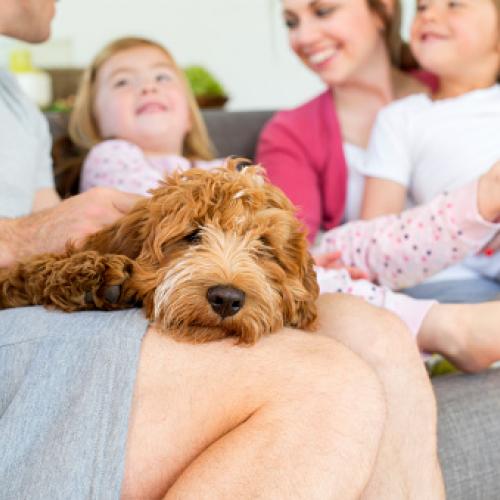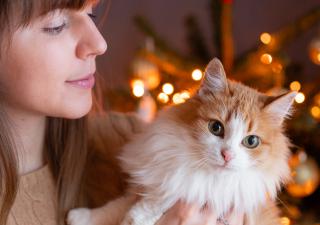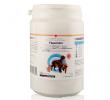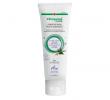
Growing up, my dog had a very special place in my heart. She was always there when I needed a friend. Watching how my parents cared for her, I also learned what it was to be committed and responsible. Sadly however, we often hear of people getting rid of their dogs when they have children. For all the positive things dogs can bring to our families, we owe them every opportunity to stay with us.
So, what makes dogs react badly to children?
Children make brisk movements, have high pitched voices and often scream a lot! They grab onto fur and will even try and take away your dog’s stuffed toy! Children are also unable to recognize dog body language such as a subtle lip lift or body stiffening as a first cue to back-off.
What can we do to help?
The grand majority of bite incidents between children and dogs occur by a dog they know and when there is little or no supervision by an adult.
The recommendations below may reduce the risk your dog poses as well as making your dog less stressed around children!
1. Recognize signs of stress in your dog: yawning, lip licking, big eyes (moon eyes), ears slightly back, stiff body stance, frown (wrinkled brow), tail down, low body posture and looking away. These signs are often observed prior to defensive growling, baring teeth, barking, snapping and even biting.
2. Always position yourself between your dog and any child. If this is not possible then place your dog somewhere else with a physical barrier - a SAFE ZONE (a room, a crate, behind a baby gate).
3. Attach your dog to YOU when you cannot use a SAFE ZONE. Tethering her to your belt with a leash and using anti-pulling harnesses (head or body) to have more control are simple ways to do this.
4. Teach your dog to “go to your spot”. Many dogs do not know they can themselves move away from the oncoming scary toddler! For example,
- Show her a treat, say “Go to your spot” and toss the treat four or five feet away from you or onto a safe spot (a bed, a room, etc). Repeat ++.
- Say “Go to your spot” and move your arm as though you’re tossing a treat. When she moves in the direction of where you pointed, even if she only takes one step, say “Yes!” and immediately toss the treat.
- After more repetitions, try waiting until she takes several steps away before you say “Yes!” and then toss the treat.
- Practice this command over and over until you can ask your dog to “go to her spot” from another room!
Tips & Tricks
- Here are some tips to ensure your guests know how to interact with your dog during the Holiday season.
- Here are some tips to ensure a more pleasant stay for your friends and family with cat allergies.
- Do you know what pet insurance can cover? Here’s how it works.
- Contrary to dogs, cats have a profound hatred of costumes. Here’s why.
Products
- Zentonil®, to help support the cognitive function of aging pets, will help when your pet's liver is compromised…









